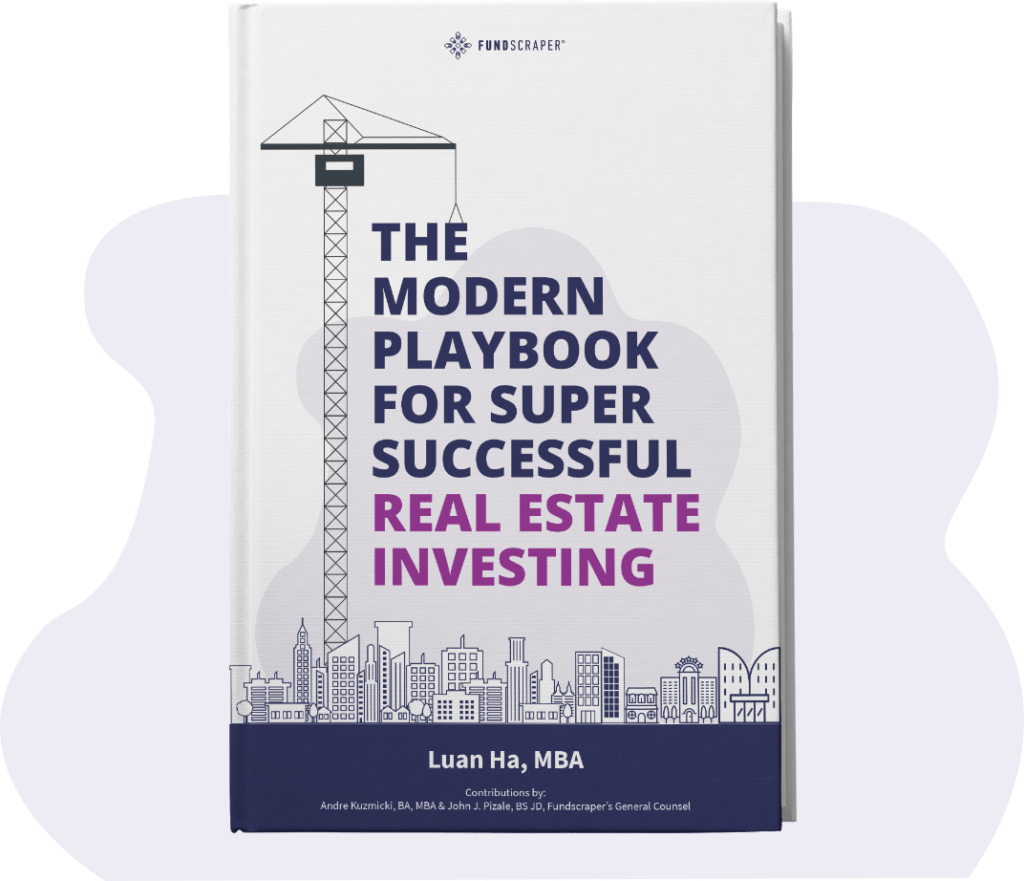Novice investors often tell us that real estate investing sounds too intimidating. When we explain how Fundscraper lets you invest as little as $5,000, they tell us it sounds too good to be true. It’s not—we promise! The truth is, real estate investing is a realistic, achievable way to expand your income sources and make passive income. We put together an overview of seven ways to get started. Which one sounds right for you?
Key Points
- One of the most common methods of earning passive income is through the ownership of financial investments like real estate.
- Mortgages are the most common and significant type of debt held by Canadians. Approximately 40% of Canadians have a mortgage.
- Unlike REITs, where your investment is placed in physical properties, with a MIC, your investment is placed in property mortgages.
What is Passive Income (Canada)?
Income can be divided into two main categories: Active and Passive. Active income is earned by exchanging services — including wages, taips, salaries, and business income — for money. Passive income is divided into two subcategories: real estate and portfolio income. Unlike active income, passive income requires little to no involvement in the generation of income and is typically earned on an ongoing basis.
What is Passive Investment Income (Canada)?
Passive investing is one of the most common strategies for increasing your income, growing your investment portfolio, and building a healthy nest egg for the future. We’ve compiled a list of ways real estate can help you generate passive income to achieve your investment goals.
One of the most common methods of earning passive income is through the ownership of financial investments like real estate.
How to Make Passive Income in Canada
Here are even some real estate passive income ideas (Canada) to get you started.
Real Estate Investment Trusts (REITs)
REITs are one of the most popular real estate investment vehicles amongst Canadians. They’re trusts that passively hold interests in real property, with at least 75% of the trust’s revenue coming from rent or mortgage interest from Canadian properties, as well as capital gains from the sale of such properties. Modelled after mutual funds, REITs are the next closest thing to owning real estate and finance a wide variety of buildings, including many shopping malls, office buildings, and apartment complexes.
Unlike traditional mortgages, REITs offer broad diversification with both equity and debt investment opportunities. A downside to this investment opportunity is lack of transparency and control on your investment because investors cannot choose which real estate assets their investment goes into.
Unit Trusts
By investing into a unit trust, your investments are handled by a fund manager who uses their expertise to invest your money into a portfolio of assets. At Fundscraper, this is our bread and butter, with the Fundscraper Property Trust (FPT) offering Canadians the opportunity to invest in pooled mortgages.
Pooled Mortgages consist of one or more mortgages that offer a similar return and loan-to-value ratio, meaning that you can invest in numerous mortgages that align with your risk appetite through one transaction.
Mortgage Investment Corporations (MICs)
MICs offer investors an opportunity to pool their money and buy shares in their MICs. Since they invest directly in mortgages rather than property, MICs are less susceptible to the same unforeseen issues that may arise in physical properties. Additionally, a MIC may invest up to 25% of its assets directly in real estate, but may not develop land or engage in construction, and must have at least 20 shareholders.
MICs offer investors an opportunity to pool their money and buy shares in their MICs. Since they invest directly in mortgages rather than property, MICs are less susceptible to the same unforeseen issues that may arise in physical properties. Additionally, a MIC may invest up to 25% of its assets directly in real estate, but may not develop land or engage in construction, and must have at least 20 shareholders.
Unlike REITs, where your investment is placed in physical properties, with a MIC, your investment is placed in property mortgages.
Mortgages
Homeownership allows you to build equity. And, depending on the local market conditions, real estate may appreciate. Investing in a mortgage, especially someone else’s, means you’re taking on the role of a lender and the borrower must repay the loan with interest, usually monthly. If chosen properly, these monthly principal and interest payments can offer a steady, predictable stream of passive investment income.
Mortgages are the most common and significant type of debt held by Canadians. Approximately 40% of Canadians have a mortgage.
Start Investing in Real Estate Backed Investments Today
Explore the investments available on Fundscraper.
Real Estate Syndications
When you invest your money into a syndicate mortgage, you become a secured lender and are recognized as a part-owner of the mortgage. You’re not investing in a fund; instead, two or more investors are investing in one specific mortgage, pooling their resources together to own a “piece of the pie.” Investors hold in proportion to what they contributed. In real estate syndications, passive investors don’t have to be actively involved in property management, accounting, or tenant-related issues.
One of the benefits to real estate syndications is the potentially high returns, including annual passive income and a profit on the sale of the property. A downside to real estate syndications is the barriers to entry, as the minimum investment for most offerings is $25,000. Syndicate members are expected to be sophisticated mortgage investors as they are not relying on the efforts of anyone else for a return on their investment.
One of the oldest real estate “plays” is buying an additional property to earn money and extra income.
Real Estate Crowdfunding
Similar to syndications, real estate crowdfunding is when a group of individuals pool their capital together to purchase real estate. Real estate crowdfunding uses the internet and social media platforms to reach potential investors.
The main reason that many people opt for real estate crowdfunding is that it doesn’t require a large amount of money to start. You can invest as little as $1,000. Unlike REITs, with crowdfunding, you’re investing in properties directly and can choose which properties you would like to invest in. Moreover, real estate crowdfunding helps investors to expand the risk in their portfolios by not having their entire funds in the equity market.
Buying Income Producing Properties
Whether it’s buying a student house in a university town or renting out a duplex in a residential area, owning a property can be lucrative, but typically requires lots of planning, management, and a large down payment. Standard bank financing will typically top out at 75% loan-to-value. While property management isn’t for everyone, for the few willing to do the homework, owning and managing an income property can complement an investment portfolio geared to generate income.
How to Maximize Generating Passive Income in Canada
Real estate investment is an excellent way to build passive income streams, grow your investment portfolio, and build a healthy nest egg for the future. Done right, it doesn’t have to take a lot of time and energy. There is, however, an added risk. As a result, this strategy isn’t for every investor. Understanding that everyone has different preferences, needs, and risk tolerances, we recommend consulting with a financial advisor before you decide whether or not to invest in passive income assets. It’s time to expand your income sources and make real estate investing your new side hustle!










